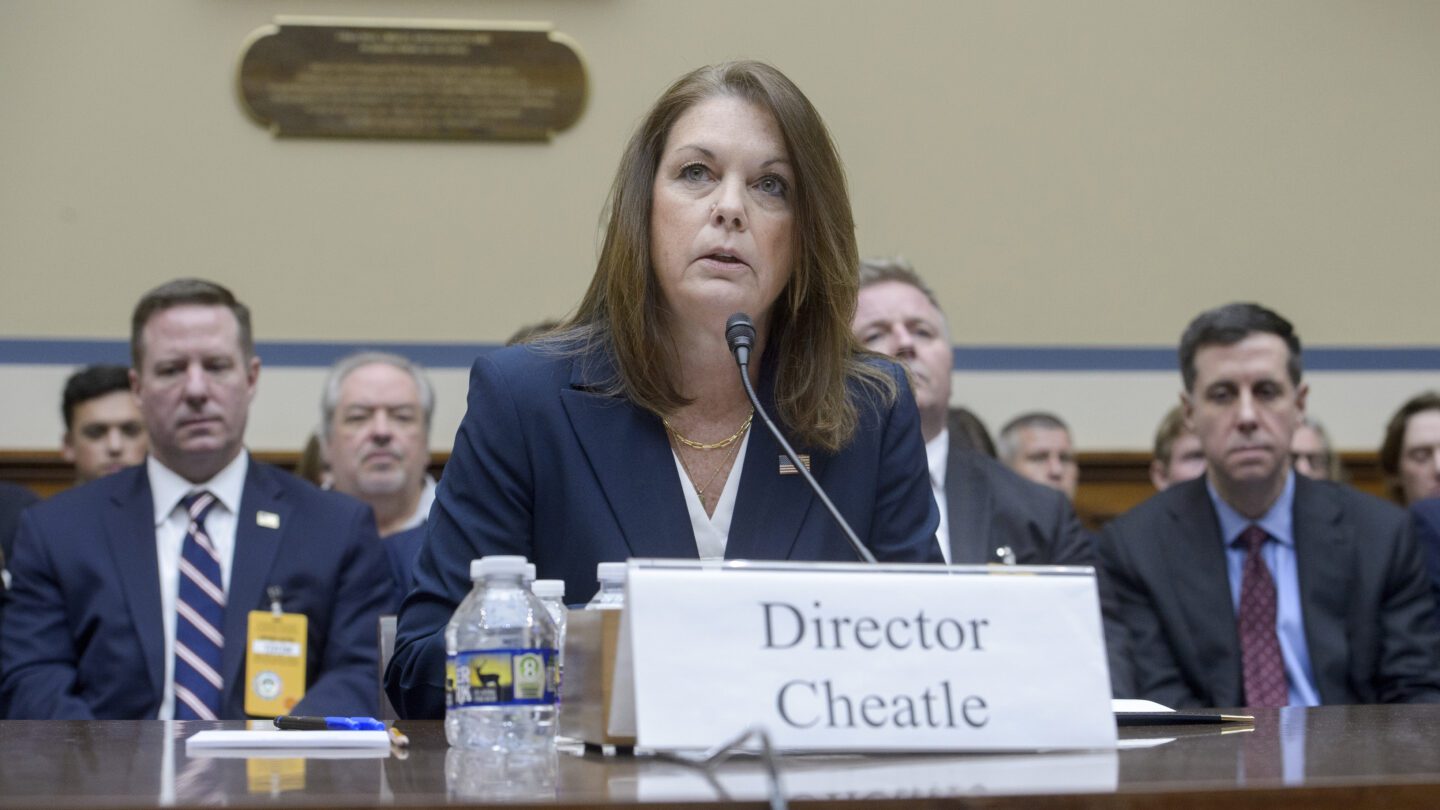Complete Transcript
David Pakman: It is great to welcome back to the program today, Allan Lichtman, who's a professor of political historian, author and professor at American University in Washington, DC. Professor, we looked at your recent appearance on CNN, which I found very interesting. You told the, hosts that they were complicit to some degree in, sort of reestablishing the idea that maybe Trump is a viable alternative to Joe Biden on the basis of the debate. (0:00 to 0:29).
Before we get to the debate, generally speaking, do debates make a difference in the framework you've established and used for decades now to predict the outcome of presidential elections? (0:29 to 0:44).
Allan Lichtman: Debates do not directly figure into my system "the keys to the white House", which have been right since I predicted Ronald Reagan's reelection in April 1982, almost three years before the election, when the nation was mired in what was then the worst recession since the Great Depression. Ronald Reagan's approval ratings were in the gutter, 1:07
and 60% of the public said he was too old to run again for president. Of course, he won in one of the biggest landslides in U.S. history. (0:44 to 1:21).
But aside from the keys, history shows debates have no predictive value whatsoever. Hillary Clinton won the debates in 2016 and still lost the election. John Kerry won the debates in 2004 and still lost the election in 1980. Gerald Ford committed the greatest gaffe ever in a debate when he said that Eastern Europe is not under Soviet domination. That generated huge headlines. And he almost won that election. He lost, but he did vastly better than the pollsters and the pundits would indicate in the wake of the Watergate scandal. And the loss of the Vietnam War. (1:21 to 2:05).
David Pakman: So a bunch of different things to ask about. I'll take them one by one. Some have made the counterpoint to your framework and position about the debates not making a difference -- that they never have. We had a debate in which a candidate seemed so unfit as Joe Biden seemed on June 27th. And therefore, while your model maybe has been correct in the past, it doesn't account for the possibility of what happened on June 27th. This is the argument that some are making about your statements regarding the debates predictive value. Is it conceivable that -- that would be a novel but accurate interpretation of the impact of this particular debate? (2:05 t0 2:51).
Allan Lichtman: Let me say this. Every four years someone says to me -- this year is different. Your keys won't work. You got to change your model. We have an African American run. Never had that before. The country's not ready for that. We have a woman run. Never had that before. Country's not ready for that. We have social media. We've never had that before. That changes everything. And I have two answers to that. Number one, you can't change your model on the fly. That is a prescription for error. Number two, my model is based on history, but it's very robust. Prospectively, it goes back to 1984. It's got a 40 year record. No other model comes close. (2:51 to 3:37).
And retrospectively, I developed the model going all the way back to 1860. The horse and buggy days of American politics when we didn't have, automobiles, jet planes, polls, television, radio. When we were an agricultural society. Women couldn't vote. Most African Americans were enslaved. My ancestors from Eastern Europe, Latinos, Asians haven't gotten here yet. So the keys have endured enormous changes in our society, our economy, our politics, our communications. (3:37 to 4:19).
And it's the height of following to make the presumption that, something is now different and I need to change the model. You cannot, moreover, judge a presidency on one debate. Debates go way down on the list of what makes a successful president. Far more important are values, judgment, experience. And, you know, all of those critics don't take into account an incredibly successful Biden administration. Why hasn't his so-called impairment destroyed his presidency? He has more domestic accomplishments than any US president since the 1960s. It was Biden and Biden alone who put together the very difficult coalition of the West that stopped me from conquering Ukraine. (4:19 to 5:12).
And unfortunately, a lot of the impressions of the debate are from the media. Most people didn't watch the debate. You know, the vast majority of Americans and registered voters never watch. So they got only their impressions from the media, which almost entirely focused on Biden -- and legitimately so. There were legitimate questions to be raised, but almost entirely ignored. The far worse, much more dangerous performance by Donald Trump. He has based his presidency on lives. He lied his way through the debate one line for every
minute to 20 to 30 seconds of speaking time. Huge lies. Lies about the January 6th insurrection, lies about the 2020 election, lies about our prices going up four fold when they only went up 25% [when it was] one eighth of that. (5:12 to 6:00).
And he said he wouldn't accept the results of a fair election and promised to govern as an authoritarian. What is more dangerous than a president who will, if elected, destroy our democracy, and a president who may have issues related to age and diminished capacity? What would be worse for America? On the one hand, Donald Trump gets elected and destroys our democracy, which he's promised to do -- is right out on the open and what he's going to do -- and by the way, snuffed out the free and independent press. You know, what the press has done is so self-defeating. That's far worse than, let's say, Biden doesn't complete his second term. Harris becomes president. She follows the same policies. She is eminently qualified as a vice president or former senator, former attorney general. (6:00 to 6:56).
And by the way, we have historical precedent for that. Harry Truman took over from FDR, and today is regarded as one of the great war time presidents. Lyndon Johnson took over from JFK and pushed through Congress the war on poverty. And the most important piece of legislation since World War two, the Civil Rights Act of 1964. You know, I've summarized American politics in one sense. Republicans have no principles. Democrats have no spine. Republicans united behind a guy who has openly indicated he's going to destroy our democracy. He said he'd be a dictator on day one. And every dictator in the history of the world, when they're a dictator on day one, has been a dictator forever. He's convicted felon civilly. He was found to sexually assaulted a woman, colloquially raped her, found to have committed massive financial fraud. His charity was dissolved because he was using it for his own personal gain. His Trump Institute and Trump University went down the tubes 34th felony convictions. (6:56 to 8:04).
On the other hand, at the first sign of adversity, Democrats are willing to push their incumbent president under the bus -- who, by the way, was not nominated by members of Congress or donors or political operatives like James Carville. He was nominated by 87% of the Democratic primary voters. And the Democrats are so foolish as to air all their dirty laundry out in public. And creating an image that Trump just loves -- of a Democratic party that can't get it together, that's in total chaos. (8:04 to 8:41).
David Pakman: I, hard to find a disagreement with that analysis. Professor Lichtman, to get back briefly to the model, if I understand the model correctly, and I believe we talked about this the last time we spoke some years ago, the model predicts the popular vote outcome only. Okay, stop me if that's wrong. (8:41 to 9:02)
Allan Lichtman: When I first developed the model, there was no distance between the popular vote, and the winner. So I don't have to worry about that. But in recent years, the popular vote has become irrelevant. [Although it is] Much more important for our democracy. Yeah. The key is -- it's irrelevant because the Democrats pile up 5 million plus votes in just two states. And you know what they are. You know, comparable Republican states that, you know, counts for nothing in the Electoral College. Democrats could win those states by 537 votes and still get all the electoral votes. So in recent years, I've only called the winner. And by the way, you know, from 1992, all Republicans have only won the popular vote once. Guess what year that was? (9:02 to 9:55).
David Pakman: 2004. Which interestingly -- had 140,000 votes in Ohio gone the other way -- you would have seen John Kerry become president while losing the popular vote by about 2.5 million. It didn't happen, but that would have been quite a scenario. (9:55 to 10:05).
Allan Lichtman: Right. But it's never happened. But we have had this scenario of Republicans gaining the presidency and losing the popular vote. Donald Trump lost the popular vote by 2.8 million in 2016 and still was elected president. And by the way, I was not very popular in 90% plus Democratic Washington DC where I teach at American University, when I went against all the conventional wisdom. I predicted Trump's win in 2016 and even got a little note on the Washington Post -- where I predicted his win -- on the article that said, "congrats, professor, good call" -- and a big Sharpie letters "Donald J. Trump". (10:05 to 10:55)
David Pakman: Without going into the details of each of the keys. Can you briefly tell us which keys are currently held by Trump or Biden and which hang in the balance? (10:55 to 11:05).
Allan Lichtman: Yeah, let me just make a small correction. Trump doesn't hold any keys. The keys tap into the structure of how elections really work, which is votes up or down on the strength and performance of the White House party. Therefore all the keys are measured against the White House party. And they're always phrased -- so an answer of "true" favors the election of the White House party. And, if six or more are "false", the White House party is a predicted loser. Only two keys have anything to do with the candidates and they are very high threshold keys. They ask whether the incumbent party candidate is one of those once in a generation inspirational candidates like FDR and Ronald Reagan, who won all their elections in a huge landslides and converted a lot of members of the opposition. And they ask whether the challenger is not -- since they're always phrased as -- an answer of "true" favoring the incumbent -- with challenging party candidate is NOT one of those once in a generation inspirational candidates. (11:05 to 12:11)
With that in mind, let's see where the White House party stands. Now, Biden or whoever the nominee is, and we can talk about that a little bit more. But just Biden, the moment is down definitively two keys. The mandate key because Democrats lost the midterm elections in 2022 for the US House. And the incumbent charisma key because he is no FDR. That means four more keys would have to fall to predict his defeat. And I can direct you to the most shaky keys. Can keep some, you know, something strange could happen. But the most shaky keys are -- third party, social unrest, foreign slash military failure, and foreign slash military success. But if the Democrats push Biden out and have a big party brawl about who would replace him, then I've got to change my analysis. (12:11 to 13:10).
David Pakman: So let's talk about that. If indeed President Biden were to be pushed out, which keys shift? (13:10 to 13:17).
Allan Lichtman: Right. If Biden is pushed out and we have a party brawl for who will replace him -- there isn't the overwhelming consensus candidate -- they lose two more keys. They lose the incumbency key and they lose the contest key. That means of the four shaky keys, only two, not four, would have to fall to predict the Democrats defeat. And aside from the keys, you know how many times the White House party/the incumbent party has won since 1900, over 120 years -- has won when there's an open seat with no incumbent running in a party contest, the answer is zero. Whereas when there is an incumbent running and no party contest, they win most of the time. That's why I have a plan B, I want to hear my plan B? like plan B is -- Let's presume for a moment hypothetically, that there's so much pressure on Biden that he's forced to withdraw. What is important -- to preserve the keys -- is resign the presidency for the good of the country, which would contrast him with Donald Trump, was only in it for himself. Harris would then become president, ticking off the incumbency key, and she'd become the consensus nominee. Biden will instruct all his delegates to vote for her, ticking off the no contest key, and we'd still be in a situation where four keys, not two keys, would have to fall to. (13:17 to 14:44)
David Pakman: Okay, let me ask you about that in a little more detail. You know, sometimes I've had conversations with my rabbi friends about certain rules in Jewish law where they explain to me, hey, you know what? Here's how we do a certain thing on the Sabbath. And I say to them, you know, it really feels to me like that violates the spirit of what these rules on the Sabbath are about -- coffee makers or whatever. And you're finding a way to adhere to the letter, and they say the letter is really all that matters. With what you just said, if Harris were if Biden were to resign the presidency to make Harris the incumbent and therefore you check the incumbency key. Does it check it in the spirit of which that key was originally developed? Or does it only check the box? Nominally? You understand the analogy I'm making? (14:44 to 15:37).
Allan Lichtman: Of course. And I hate to say it, there's no ghost in the machine. There's no spirit of the keys. The keys are scientific, okay? They are what they are. Gerald Ford won the incumbency key when Richard Nixon resigned, and he was nowhere close to the position Harris would be in if she became president. Harris is the elected vice president. A former U.S. senator. Gerald Ford was an appointed vice president -- never won any election larger than a congressional district in Grand Rapids, Michigan -- and then became an accidental president when Richard Nixon resigned. But I still gave him the incumbency key. And as I said, he came way closer than anyone expected. And, of course, Lyndon Johnson got the incumbency key in 64, Harry Truman in 48. So, you know, I don't adjust the keys according to some ghost in the machine. There is no ghost. (16:21 to 16:41).
David Pakman: Fair enough. Last question. Is it abundantly clear to you that the biggest mistake Democrats could make is pushing Joe Biden out when it comes to their chances in November? (16:41 to 16:53)
Allan Lichtman: Democrats have already made a HUGE mistake by showing their lack of a spine. You know, by one sign of adversity, they're all running for the hills. Disparaging their nominee -- elected nominee, their elected president -- playing right into the hands of Donald Trump. They would play even more into the hands of Donald Trump if they pushed out Biden and then tried to get a so-called more "electable candidate". You know, Democrats are very good at picking "electable candidates", though many times, you know, proven winners, experienced candidates like Walter Mondale in 1964. Mike Dukakis, the great governor of Massachusetts in 1988, the great Senator John Kerry in 2004, the former first lady, U.S. Senator, Secretary of State Hillary Clinton in 2016. And what do all those candidates have in common? They all lost. For the most part, it's been the unpredictable, off-the-wall candidates who won for Democrats. Like Jimmy Carter, Bill Clinton and Barack Obama. (16:53 to 18:06).
You know, the Democrats also chain themselves to the polls. But I would call your attention -- and, you know, I don't follow the polls -- but this was, you know, all these other candidates, right, like Newsome or Whitmer? More electable than Biden, right? The most recent poll came out yesterday from July 9th from the respected independent Emerson College -- had Trump and Biden 50-50 dead tie. All the other alternatives were down to Trump by six points to ten points. So this idea, you know, that it's James Carville and the operatives and members of Congress -- know who's electable -- is completely contradicted by the historical record and even by the polls to which they find themselves chained. (18:06 to 19:07).
David Pakman: All right. Professor Allan Lichtman, always appreciate your time and insights. Thank you so much for your time today. (19:05 to 19:07).
Allan Lichtman: Thank you. David. Send me a link. (19:07 to 19:12). |













